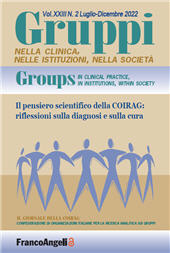L'Eneide, esilio e sradicamento
183-195 p.
In questo articolo l'autore studia l'esilio e lo sradicamento nell'Eneide di Virgilio. L'articolo pone l'accento sul mandato conferito a Enea dai genitori Anchise e dalla dea Venere, mentre fugge dalla città in fiamme di Troia in compagnia dei troiani sopravvissuti con l'obiettivo di trovare una terra per la sua gente, una casa che si trovasse nel Lazio, in Italia. Da questi Troiani, molto più tardi, sarebbe nato Romolo, il fondatore di Roma. Il poema dell'Eneide racconta le avventure di questo popolo sradicato, in viaggio attraverso il Mediterraneo, così come le incertezze di Enea, le sue nostalgie, le sue tentazioni, i suoi desideri di rinuncia, di vendetta, l'impatto della sua discesa agli Inferi così come le costose guerre di conquista e, infine, il suo insediamento. Viene sottolineata l'intimità dei processi psicologici più o meno dolorosi degli sradicati, in particolare i tre momenti del riradicamento (raggruppamento, isolamento, falso adattamento e ricorso agli antenati per
l'integrazione nel paese ospitante). Vengono citati passaggi dell'opera per far luce su questi processi ed evidenziare la bellezza del testo. Il testo è raccomandato per professionisti dei gruppi perché i processi che si esaminano presentano profonde analogie con i processi gruppali di apprendimento e clinica e alcuni fondamentali dinamiche esistenziali. [Testo dell'editore]
In this article the author studies exile and uprooting in Virgil's Aeneid. The article places emphasis on the mandate given to Aeneas by his parents Anchises and the goddess Venus, as he flees from the burning city of Troy in the company of the surviving Trojans with de aim of finding a land for his people, a home that found in Lazio, Italy. From these Trojans, much later, Romulus, the founder of Rome, would be born. The poem of the Aeneid recounts the adventures of this uprooted people, traveling across the Mediterranean, as well as the uncertainties of Aeneas, his nostalgias, his temptations, his desires for renunciation, for revenge, the impact of his descent to the Underworld as well as the costly wars of conquest and, ultimately, its settlement. The intimacy of the more or less painful psychological processes of the uprooted is underlined, in particular the three moments of re-rooting (grouping, isolation, false adaptation and recourse to the ancestors for integration in the host
country).Passages from the work are cited to shed light on these processes and highlight the beauty of the text. The text is recommended for group professionals because the processes examined present profound analogies with group learning, clinical processes and some fundamental existential experiences. [Publisher's text]
-
Articles from the same issue (available individually)
-
Information
DOI: 10.3280/gruoa2-2022oa19802
ISSN: 1972-4837
KEYWORDS
- Sradicamento, Migrazione, Isolamento, Assimilazione, Integrazione, Vendetta
- Uprooting, Migration, Isolation, Assimilation, Integration, Revenge


